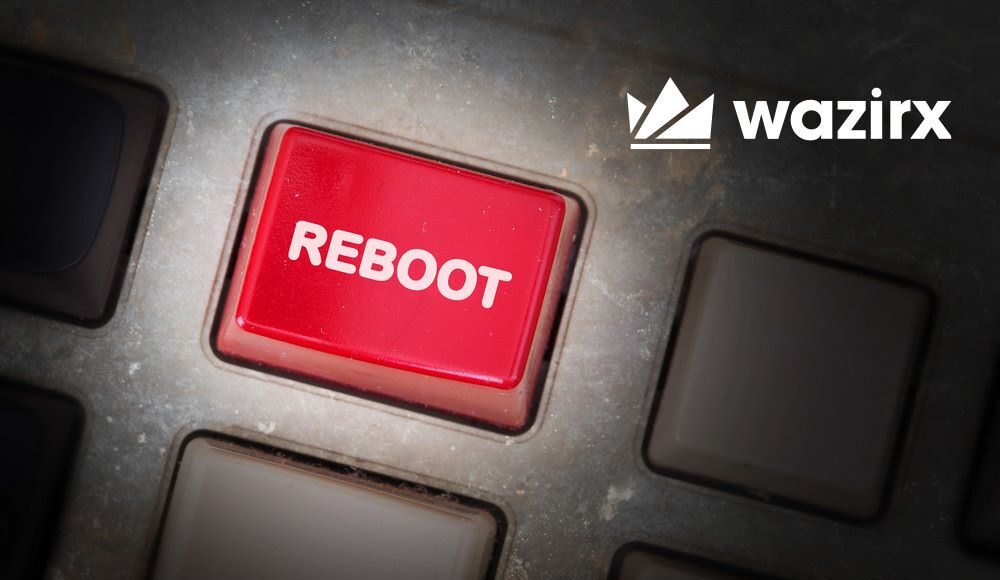As the dust settles on a $235 million hack, one of India’s most prominent cryptocurrency exchanges is embarking on a new direction toward decentralization. WazirX plans to launch a decentralized exchange (DEX), offering enhanced user control and minimizing reliance on centralized intermediaries. This bold pivot aims to strengthen platform security and address vulnerabilities exposed by the recent cyberattack. However, it also marks a significant shift in WazirX’s operational philosophy, aligning it more closely with the decentralization principles at the core of the crypto industry.
Yet, WazirX’s strategy brings a new challenge: navigating the Indian regulatory landscape. India has been cautious in its embrace of cryptocurrency, often expressing concerns over decentralized finance (DeFi) platforms. In this context, WazirX’s move to a decentralized model may prompt further scrutiny from regulatory authorities. They already impose stringent rules on crypto exchanges, including mandatory KYC (Know Your Customer) compliance and anti-money laundering (AML) protocols. Decentralized exchanges typically allow users to trade assets directly from their wallets without an intermediary. Therefore, WazirX could face significant regulatory hurdles that may complicate its path forward.
A Recovery Plan Built on Decentralization and Compensation
The cornerstone of the WazirX recovery plan is its decentralized exchange launch. In response to the July 2024 hack, which compromised countless user assets, WazirX leverages decentralization to reduce the risk of similar incidents. A decentralized model means users retain greater control over their funds, decreasing the exchange’s own custodial responsibilities. In effect, this pivot minimizes the potential impact of future attacks on the platform itself. It aligns with a broader industry trend favoring self-custody and user autonomy.
In addition to its DEX plans, WazirX is rolling out a recovery token to compensate users affected by the cyberattack. This recovery token, distributed on a pro-rata basis, will initially allow affected users to recover 48% of their lost funds. The tokens will be tradable on the platform, providing some liquidity to impacted investors while they await further recovery measures. WazirX has committed to using revenue from new platform features, such as crypto staking and an over-the-counter (OTC) trading desk, to buy back these recovery tokens. This approach aims to boost the tokens’ value over time, gradually compensating users for their losses.
Regulatory Challenges: Decentralization Meets Indian Compliance Laws
India’s regulatory stance on cryptocurrency has always been cautious. Hence, regulators will likely scrutinize WazirX intensely for introducing a decentralized exchange. DEX platforms generally lack the central control required to enforce KYC and AML checks. That may put WazirX’s DEX at odds with existing regulations in India. Regulatory authorities in India have historically voiced concerns about the risks associated with unregulated and pseudonymous transactions in the crypto space, fearing potential abuses related to money laundering, fraud, and tax evasion.
Given these concerns, WazirX may face demands to integrate compliance mechanisms within its DEX platform or be compelled to adopt a hybrid approach. This might include applying selective KYC measures or limiting access to certain features for Indian users to adhere to local regulations. The push towards decentralization, while a proactive measure to enhance user security, also increases the complexity of maintaining compliance within India’s regulatory framework.
Balancing Innovation and Compliance
WazirX’s move to decentralization comes at a time when regulatory frameworks for cryptocurrencies are in flux across the globe. Many countries are introducing laws to govern DeFi, centralized exchanges, and stablecoins. In India, regulatory clarity remains limited, with authorities still working out the specifics of their approach to cryptocurrencies. Despite this uncertainty, WazirX’s decentralized initiative could influence the direction of Indian crypto regulation. It might even set a precedent for other exchanges navigating similar security and compliance challenges.
In the interim, WazirX’s approach underscores a balancing act between innovation and regulation. The exchange seeks to align with industry trends toward decentralization while remaining mindful of the unique regulatory pressures within India. Introducing the recovery token demonstrates WazirX’s commitment to its users, serving as a compensation mechanism that aligns with the company’s shift to decentralization. However, the degree to which this strategy will satisfy users and regulators remains an open question.
As the exchange prepares to resume trading with its revamped platform and decentralized features, the path forward for WazirX remains promising but uncertain. The success of its recovery plan will depend on user acceptance and effective implementation of its new DEX model, but also on how it addresses the inevitable regulatory challenges in India’s evolving crypto landscape.
Readers’ frequently asked questions
How can users actively participate in maximizing the value of the recovery token?
Users affected by the hack can engage in several ways to help build value in the recovery token. Staying active on WazirX’s platform, trading the recovery token, or even holding it over time, helps create liquidity and demand, which can bolster the token’s market dynamics. Additionally, users may participate in the newly introduced features like staking or OTC trades. Profits from these services are earmarked for repurchasing the recovery tokens. Contributing to the platform’s revenue generation through these services indirectly supports the buy-back mechanism. That in turn can help increase the token’s value.
What broader implications could WazirX’s shift to a DEX model have for India’s crypto industry?
WazirX’s move could set an influential precedent for other Indian crypto exchanges. It may encourage them to consider decentralization as a security enhancement. If successful, this shift might drive demand for regulatory frameworks that accommodate decentralized finance (DeFi) within India’s crypto landscape. WazirX’s DEX experiment could potentially act as a case study for Indian regulators on how DEXs function and highlight the need for tailored regulations in a decentralized environment. Moreover, as WazirX integrates decentralized features, other exchanges may feel the competitive pressure to innovate similarly. That could spur broader changes in India’s crypto infrastructure.
How might WazirX ensure the integrity of its DEX while navigating compliance requirements?
WazirX could explore a hybrid DEX model, where some compliance mechanisms are layered in without compromising user autonomy. For instance, it might allow KYC-compliant users access to a full suite of trading options while providing limited access or requiring certain permissions for those who do not complete KYC. Additionally, WazirX could collaborate with regulatory bodies, presenting them with data insights on how DEXs can offer secure, self-custody options without compromising regulatory standards. This collaboration could help shape a compliance framework that protects users and respects decentralization. That would benefit WazirX and the broader crypto ecosystem in India.
What Is In It For You? Action Items You Might Want to Consider
Enhanced Asset Security and Self-Custody
By using WazirX’s new decentralized exchange, you’ll have greater control over your assets since they won’t be held in a central repository vulnerable to large-scale hacks. This self-custody approach aligns with industry trends that prioritize user control, giving you a safer trading environment. Consider familiarizing yourself with how decentralized exchanges work. Understand wallet setups and management of your private keys to maximize this security benefit.
Opportunity to Recover Lost Funds
The recovery token provides a pathway to regain lost assets from the recent hack and offers liquidity options within WazirX’s ecosystem. With the platform’s commitment to buy back these tokens over time, you could recoup a substantial portion of your funds. Think about whether holding or trading the recovery token aligns better with your goals. Keep an eye on platform announcements regarding token repurchase events, which could affect the token’s market value.
Staying Ahead in a Decentralized Financial Landscape
As WazirX shifts towards decentralized services, this move could open doors to other DeFi offerings, such as staking and futures trading, providing you with diverse ways to grow your assets. When you engage with these features, you also support the platform’s revenue-generating efforts. That indirectly boosts the value of recovery tokens and other DEX services. Explore how these new DeFi products work and evaluate if they fit your investment strategy. Additionally, staying informed about India’s regulatory changes related to decentralized exchanges could provide you with a strategic edge as this market evolves.











Ive read several just right stuff here Certainly price bookmarking for revisiting I wonder how a lot effort you place to create this kind of great informative website
[…] the wake of the breach, WazirX announced plans to transition from a centralized exchange to a decentralized model. By decentralizing operations, the exchange aims to reduce vulnerabilities and provide users with […]
[…] the proposed plan, WazirX intends to relaunch its trading operations through a new decentralized exchange (DEX). The DEX would be integral to its reimbursement process as WazirX aims to issue tradable […]
[…] >>> Read more: WazirX Decentralized Exchange Launching in India? […]